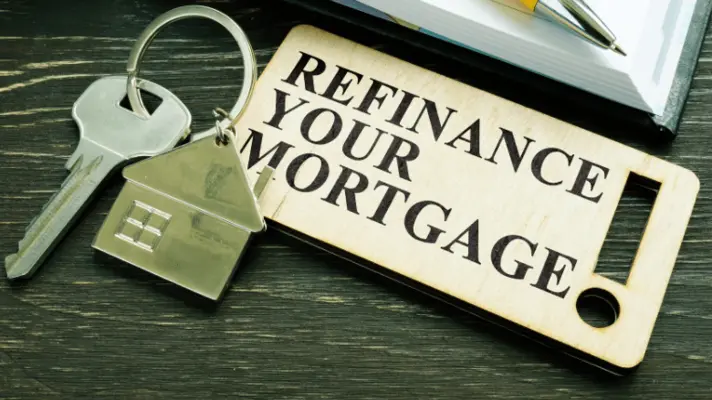
In 2026, the VA does not set a minimum credit score for IRRRL or cash-out refinances, but lenders do. That means “requirements” are really lender overlays based on risk, pricing, and documentation strength. IRRRLs are usually more flexible, while cash-out refinances are tighter because they increase loan balance and require full underwriting.
Key Credit Score Rules for VA Refinancing
- The VA program itself does not publish a minimum score, so lender overlays drive most approvals and declines.
- IRRRL refinances often tolerate weaker credit when payment history is clean and required seasoning is satisfied.
- Cash-out refinances usually require stronger credit because the lender must verify value, income, and ability to repay.
- Even when you are eligible, your score still affects pricing, which can change monthly savings and recoupment.
Why IRRRL and Cash-Out Credit Standards Differ
- IRRRLs are designed to reduce cost or improve stability, so many lenders view them as lower operational risk.
- Cash-out refinances increase leverage, so lenders apply stricter score, DTI, and documentation thresholds to control losses.
- Higher loan amounts or high LTV structures can push lender score targets upward, even within the same VA program.
Top Questions About VA IRRRL & Cash-Out Credit Scores
What Credit Score Do I Need for a VA IRRRL in 2026?
There is no official minimum score from the VA for an IRRRL. Many lenders target scores around the low 600s, but some will approve lower if your mortgage payment history is strong and the refinance meets required seasoning and benefit rules.
What Credit Score Do I Need for a VA Cash-Out Refinance in 2026?
Cash-out refinances usually require stronger credit than IRRRLs because the lender must order a new appraisal and fully underwrite income and debts. Many lenders target around the low-to-mid 600s, and pricing often improves meaningfully at higher scores.
How Can I Improve My Approval Odds If My Score Is Below 620?
Focus on controllable factors: reduce credit card utilization, avoid new debt, and correct reporting errors before applying. Also stabilize monthly cash flow so your DTI and residual income are strong on paper. A clean payment history and documented reserves can offset a weaker score.
Key Takeaways
- The VA sets no minimum credit score; lenders apply overlays based on risk and pricing.
- IRRRL refinances often approve lower scores when mortgage payments are consistent and seasoning rules are met.
- Cash-out refinances typically require stronger credit because they add leverage and require full underwriting.
- Credit score affects interest rate most; DTI, residual income, and payment history still drive approval.
- Shop multiple quotes on the same day and compare points, credits, and recoupment months.
- Improve odds by lowering utilization, avoiding new debt, and documenting income and assets cleanly.
What Credit Score Do You Need for a VA IRRRL in 2026?
The VA does not set a minimum credit score for an IRRRL; lenders set overlays. A common lender target is around 620. The practical requirement often comes down to payment history, loan seasoning, and whether the refinance produces a clear benefit. The VA’s Interest Rate Reduction Refinance Loan page explains the IRRRL’s purpose and eligibility at the program level.
- Many IRRRL approvals are driven by your most recent mortgage payment performance, because consistent on-time payments reduce the lender’s default risk.
- Some lenders run a full credit report, while others emphasize mortgage history, but either way your score can still affect the rate offered.
- If your credit score is low due to high utilization, lowering balances before you lock can improve both approval odds and pricing stability.
- Pull your credit reports early and verify addresses, account statuses, and late-payment markings so underwriting does not pause the file for disputes.
- Estimate your monthly principal-and-interest change and confirm the refinance benefit is meaningful enough to justify costs and compliance checks.
- Keep your payment behavior stable through closing, because a new late payment can change lender terms even if you were prequalified.
Operationally, an IRRRL is easiest when you treat it like a controlled swap: same home, same lien position, and improved terms supported by a clean payment track record.
What Credit Score Do You Need for a VA Cash-Out Refinance in 2026?
Cash-out refinances typically require stronger credit because they increase the loan balance and require full underwriting. Many lenders start near the low-to-mid 600s, and higher targets are common when you push higher loan amounts or tighter DTI margins. The VA’s cash-out refinance loan page outlines what the benefit can be used for and how the program works at a high level.
| Feature | VA IRRRL | VA Cash-Out Refinance |
|---|---|---|
| Primary Goal | Reduce rate or stabilize terms on an existing VA-backed loan. | Access home equity or refinance a non-VA loan into a VA-backed loan. |
| Credit Standards | Often more flexible, with heavier weight on mortgage payment history. | Usually stricter, with more emphasis on score, DTI, and documentation. |
| Documentation Load | Commonly lighter, depending on lender overlays and loan status. | Commonly heavier, including full income verification and debt review. |
| Appraisal | Often not required by the program, but lender rules can vary. | Typically required because value and equity determine cash-out capacity. |
- Lenders treat cash-out as higher risk because the refinance can remove equity, increasing the chance of loss if the borrower later defaults.
- Your credit score influences both approval and pricing, and pricing changes can materially affect whether the new payment fits your budget.
- Income stability and clean documentation matter more than most borrowers expect, because underwriters validate capacity to repay in detail.
- Define why you need cash and how much is truly required, because a smaller cash-out can improve approval odds and lower total interest cost.
- Estimate your current loan-to-value based on a conservative value assumption, so you do not plan around best-case appraisal results.
- Collect your income and employment documentation early, including LES, pay stubs, and W-2s, to prevent avoidable underwriting delays.
For most borrowers, the cash-out decision should be treated as a risk-managed trade: immediate liquidity versus a larger long-term loan obligation.
How Do Lender Overlays Work for VA Refinances?
Lender overlays are internal rules a lender adds on top of VA program guidelines. Overlays explain why one lender can approve a borrower another lender declines, even with the same COE and property. The VA notes that it does not require a minimum credit score, but lenders may set standards to manage risk and pricing. The VA Home Loan Guaranty Buyer’s Guide describes this division between VA program rules and lender borrowing requirements.
| Credit Score Band | Typical Lender Posture | What Usually Improves the Outcome |
|---|---|---|
| Below ~580 | Fewer lender options and heavier documentation, even when income is strong. | Lower utilization, resolve derogatories, and build reserves to show payment capacity. |
| ~580–619 | More options for IRRRL; cash-out may still be limited or priced higher. | Reduce revolving balances and avoid new accounts so the score does not fluctuate during underwriting. |
| ~620–679 | Most lenders participate; cash-out underwriting is more realistic with stable income. | Strengthen DTI and residual income so the file is resilient if rates move before closing. |
| ~680+ | Typically strongest pricing and smoother underwriting when the file is otherwise clean. | Maintain stability, keep deposits sourced, and minimize last-minute changes that trigger re-disclosure. |
- Overlays often reflect investor rules, portfolio strategy, and how the lender plans to sell or service the loan after closing.
- A lender may accept a lower score but price the rate higher, which can erase the monthly savings you expected from refinancing.
- Two borrowers with identical scores can still get different outcomes if one has higher residual income, cleaner payment history, or stronger reserves.
- Ask each lender for its minimum score policy for both IRRRL and cash-out, then confirm whether that minimum changes with higher loan amounts.
- Standardize your quote requests to the same lock period, same loan term, and same estimated value so you can compare offers without noise.
- Prioritize lenders that clearly document assumptions in writing, because undocumented assumptions are the main source of last-minute pricing surprises.
Maintaining situational awareness means recognizing that a “VA requirement” and a “lender requirement” are not the same thing, even when both are enforced.
What Matters More Than Your Credit Score for VA Refinances?
Credit score is important, but it is not the only decision driver. Lenders underwrite your full risk profile, including debt-to-income, residual income, stability of income, and payment history. The VA’s underwriting guidance emphasizes a holistic review and states the VA does not require a minimum credit score. See the VA Lender’s Handbook Chapter 4 on credit underwriting for the official framework lenders follow.
- Debt-to-income can override a good score if the new payment pushes monthly obligations beyond what your income can support consistently.
- Residual income is a critical affordability check because it measures real cash left after housing and debts, not a percentage ratio.
- Recent late payments, collections activity, or frequent new credit inquiries can signal instability even when the middle score looks acceptable.
- Reduce monthly debt obligations before applying by paying down revolving balances and avoiding new installment loans that increase required payments.
- Document stable income clearly, including variable pay history, so the lender can support the income calculation without repeated conditions.
- Build cash reserves where possible, because reserves can function as a compensating factor when DTI is higher than a lender’s comfort zone.
If your score is borderline, the cleanest path is often improving the full file: lower monthly debt, stronger residual income, and a stable documentation trail.
How Do Seasoning, Payment History, and Net Tangible Benefit Affect Approval?
Seasoning and net tangible benefit rules are non-negotiable compliance gates for many VA refinances. Even with a strong score, a refinance can fail if required time and payment history thresholds are not met or if the benefit is not clear. VA guidance on recoupment and required disclosures is detailed in VA Circular 26-19-22, which lenders use to document compliance.
- Seasoning requirements protect borrowers from serial refinancing by requiring a minimum time period and a minimum number of payments before refinancing.
- Payment history can substitute for score strength in IRRRL decisions, but late payments can trigger prior-approval requirements or denial.
- Recoupment math and net benefit documentation must be consistent across disclosures, or the lender may need to re-disclose and delay closing.
- Confirm your first payment due date on the current loan and count forward to verify that seasoning timing supports the closing you want.
- Review the last 12 months of mortgage payments and correct any reporting errors before the lender runs underwriting, especially if a servicer changed.
- Calculate your break-even using principal-and-interest savings and total fees, then validate the lender’s numbers match your assumptions.
From an execution standpoint, compliance failures are avoidable. The fix is disciplined math, consistent documentation, and early verification of the seasoning timeline.
How Can You Improve Approval Odds Before You Apply?
You improve approval odds by reducing volatility: stabilize credit usage, reduce monthly debt, and keep documentation clean. This matters for both IRRRL and cash-out refinances, but it is especially decisive for cash-out files with tight DTI margins. The VA’s refinancing guidance in VA Pamphlet Chapter 6 on refinancing loans provides the program definitions lenders use when structuring refinances.
- Lowering credit card utilization is often the fastest score improvement lever, because revolving balances can depress scores even with perfect payment history.
- Keeping cash reserves intact helps underwriting and also protects you operationally if the appraisal or disclosure process shifts the timeline.
- Stopping new credit activity during underwriting prevents score drops and avoids additional documentation conditions tied to newly opened accounts.
- Set a 30-day stabilization window before application where you do not open accounts, do not finance purchases, and keep spending predictable.
- Pay down revolving balances to a low utilization level, then wait for the next statement cycle so your updated balances report to bureaus.
- Create a single document packet for income, assets, and housing history, so you respond to conditions quickly and avoid rework.
Think of this as a readiness drill. If your file is stable for 30–60 days, both underwriting and pricing outcomes usually improve.
How Should You Compare Lenders With Different Credit Score Requirements?
Comparing lenders requires standardization. One lender’s lower score threshold may come with higher rates, more points, or stricter conditions. Your objective is to compare net cost and execution risk, not marketing language. The VA’s home loan types overview helps you confirm which refinance type fits your goal before you evaluate lender overlays and pricing.
- Always compare offers using the same loan term, same lock period, and the same estimated closing date so pricing is not skewed by timing differences.
- Ask whether the lender is adding points, using lender credits, or assuming escrow changes, because these items can distort “monthly savings” claims.
- Evaluate execution capability by asking about average refinance timelines, appraisal handling for cash-out, and how the lender manages last-minute conditions.
- Request written Loan Estimates from at least three lenders on the same day, then line up rate, points, lender fees, and cash-to-close side by side.
- Calculate your own break-even period using principal-and-interest savings and total fees, so you are not dependent on a lender’s presentation.
- Pick the lender that can document assumptions clearly and close reliably, because a delayed closing can erase rate savings in a volatile market.
The best quote is not always the lowest rate. It is the offer with the lowest total cost for your timeline, delivered by a lender that executes cleanly.
The bottom line
In 2026, the VA does not publish a minimum credit score for IRRRL or cash-out refinances, so lender overlays set the practical threshold. IRRRLs are typically more flexible because they are designed to reduce costs or improve stability, while cash-out refinances are stricter due to larger balances and full underwriting. To protect outcomes, stabilize your credit usage, avoid new debt, and strengthen DTI and residual income before applying. Compare lenders using the same assumptions, confirm seasoning and benefit rules early, and validate break-even math yourself. A disciplined, well-documented file is the fastest way to reduce surprises and close on terms you can defend.
References Used
- VA IRRRL Program Overview (VA.gov)
- VA Cash-Out Refinance Overview (VA.gov)
- VA Home Loan Guaranty Buyer’s Guide (VA.gov)
- VA Lender’s Handbook Chapter 4: Credit Underwriting (VA.gov)
- VA Circular 26-19-22: IRRRL Policy Guidance (VA.gov)
- VA Pamphlet Chapter 6: Refinancing Loans (VA.gov)
- VA Home Loan Types Overview (VA.gov)
Frequently Asked Questions
Does an IRRRL Require a Full Credit Check?
Sometimes. The VA program is streamlined, but many lenders still pull credit to price the loan and confirm risk. Some lenders weigh mortgage payment history more heavily, yet a credit report is still common during the process.
Can I Do a VA Cash-Out Refinance With a 580 Score?
It depends on lender overlays and the overall file. Some lenders may consider it with strong income, low DTI, and solid reserves, but many require higher scores for cash-out due to increased risk and full underwriting.
What Credit Score Usually Gets the Best VA Refinance Rates?
Rates are set by market pricing and lender risk tiers, but higher scores typically unlock better pricing. Many borrowers see improved terms when they move into stronger credit bands and maintain low revolving utilization.
Will Refinancing Hurt My Credit Score?
A refinance can cause a small, temporary dip due to the lender’s credit inquiry and the new account reporting. For many borrowers, the impact is short-lived, especially if payment history stays clean afterward.
Can I Refinance If I Had a Late Mortgage Payment Recently?
Possibly, but it depends on how recent the late payment was and the refinance type. IRRRL approvals often emphasize payment history, and repeated or recent lates may trigger additional review or a denial.
Do I Need an Appraisal for a VA IRRRL?
Often no, but lender rules can vary. The VA streamline structure commonly avoids a new appraisal, yet some lenders may require one for internal risk controls or secondary-market requirements.
How Much Equity Do I Need for a VA Cash-Out Refinance?
Equity requirements depend on lender policy and the loan-to-value limit they allow. The appraisal sets value, and the lender determines how much of that value can be borrowed against while still meeting guidelines.
Can I Refinance a Conventional Loan Into a VA Loan With Cash-Out?
Yes, in many cases a cash-out refinance can replace a non-VA mortgage with a VA-backed loan. You still must qualify under lender underwriting, including credit, income, and appraisal-based value requirements.
What’s the Difference Between an IRRRL and a Cash-Out Refinance?
An IRRRL is a streamline refinance for an existing VA-backed loan, primarily to reduce rate or stabilize terms. A cash-out refinance can access equity or convert a non-VA loan, but requires full underwriting.
How Do Active-Duty Military Borrowers Document Income for Refinancing?
Lenders typically use an LES, recent pay statements, and employment verification. If pay includes variable items like special duty pay, lenders often require history and reasonable evidence it will continue during the new loan term.








